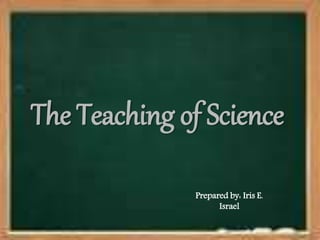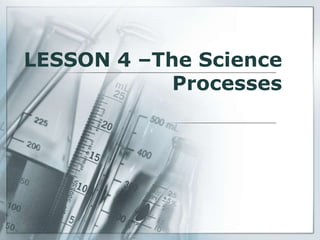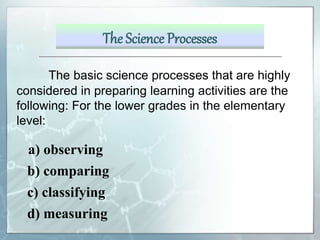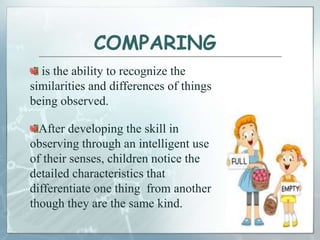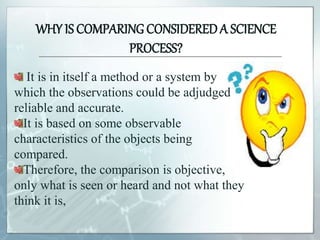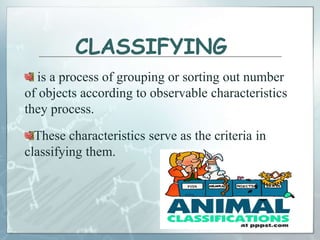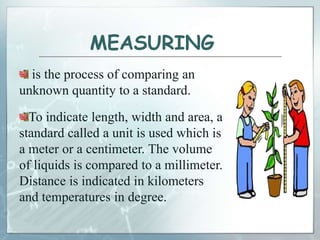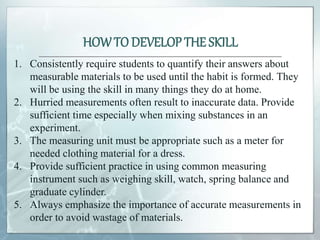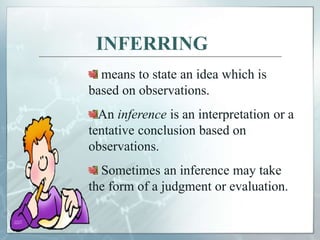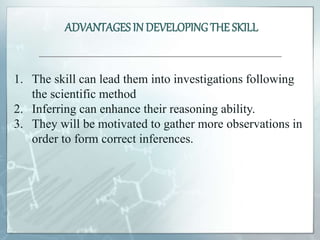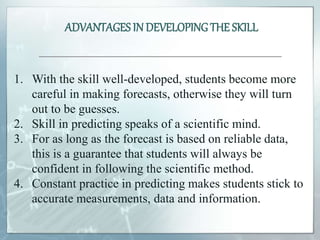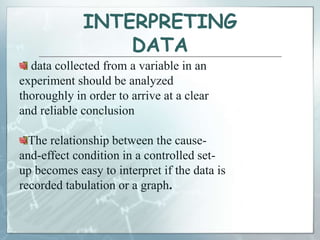This document discusses science processes that are important to teach students. It outlines basic processes like observing, comparing, classifying and measuring that are taught to younger elementary students. More advanced processes like inferring, controlling variables, predicting, interpreting data and drawing conclusions are taught to older elementary and secondary students. Each process is defined and examples are given of how to develop students' skills in each process. The goal is to help students learn to search for knowledge, think scientifically, and follow the scientific method.
